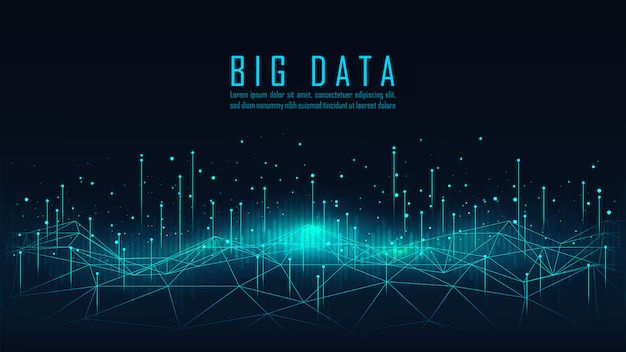We all know banks are about numbers. Deposits, withdrawals, interest rates – it’s a world of calculations. But what if those numbers could do more than just tell you your balance? What if they could predict the future… of your Finance, and the entire banking industry? That’s the power of big data, and it’s quietly revolutionizing how banks operate, and how we interact with our money.
Think about it: every time you swipe your card, pay a bill online, or even check your balance on an app, you’re creating data. Multiply that by millions of customers and countless transactions, and you’ve got an ocean of information. This “big data” is like a giant puzzle, and banks, with help from experts, are learning to put the pieces together.
So, what kind of secrets are hidden in this data ocean? A lot, actually!
- Spotting fraud faster than a speeding bullet: Imagine a thief trying to use your stolen credit card in a country you’ve never visited. Big data analytics can flag that unusual activity instantly. Banks analyze patterns – your usual spending habits, locations, and even the types of purchases you make – to create a profile of “normal.” Anything outside that profile raises a red flag, potentially saving you from a financial headache.
- Personalized service, without the awkward small talk: Remember when your bank teller knew your name and maybe even your dog’s? Big data is bringing back that personalized touch, but on a massive scale. Banks can now analyze your spending and saving habits to offer tailored products and services. Think customized loan offers, investment advice that aligns with your goals, or even proactive alerts about potential overdrafts.
- Making smarter loans (and fewer bad ones): Lending money is a risky business. Big data helps banks make more informed decisions about who to lend to, and at what interest rate. By analyzing credit history, income, and even social media activity (with appropriate privacy safeguards, of course!), banks can better assess the risk of a borrower defaulting. This means more fair and accurate loan approvals.
- Predicting market trends: Banks use the collected data about investment behaviors and patterns to predict future market trends. It allows financial organizations to prepare for the changes and make informed decisions.
- Keeping up with the times (and the competition): The financial world is changing fast. New technologies, evolving customer expectations, and a globalized economy mean banks need to adapt quickly. Big data provides insights into these trends, allowing banks to stay ahead of the curve and offer the services customers want.
This is where big data consulting service comes into play. Most banks don’t have the in-house expertise to manage and analyze these massive datasets. Specialized firms can help them build the infrastructure, develop the algorithms, and interpret the results. This isn’t just about fancy tech; it’s about understanding the story the data is telling.
For the average person, this might all sound a bit abstract. But the reality is that big data is already impacting your financial life, whether you realize it or not. From faster fraud detection to personalized financial advice, the benefits are real.
Closing thoughts
The future of banking is undeniably data-driven. As technology advances and more data is generated, the insights we can glean will only become more powerful. While concerns about privacy and data security are valid and need constant attention, the potential for good is enormous. It’s about using information to create a more secure, efficient, and personalized banking experience for everyone.







